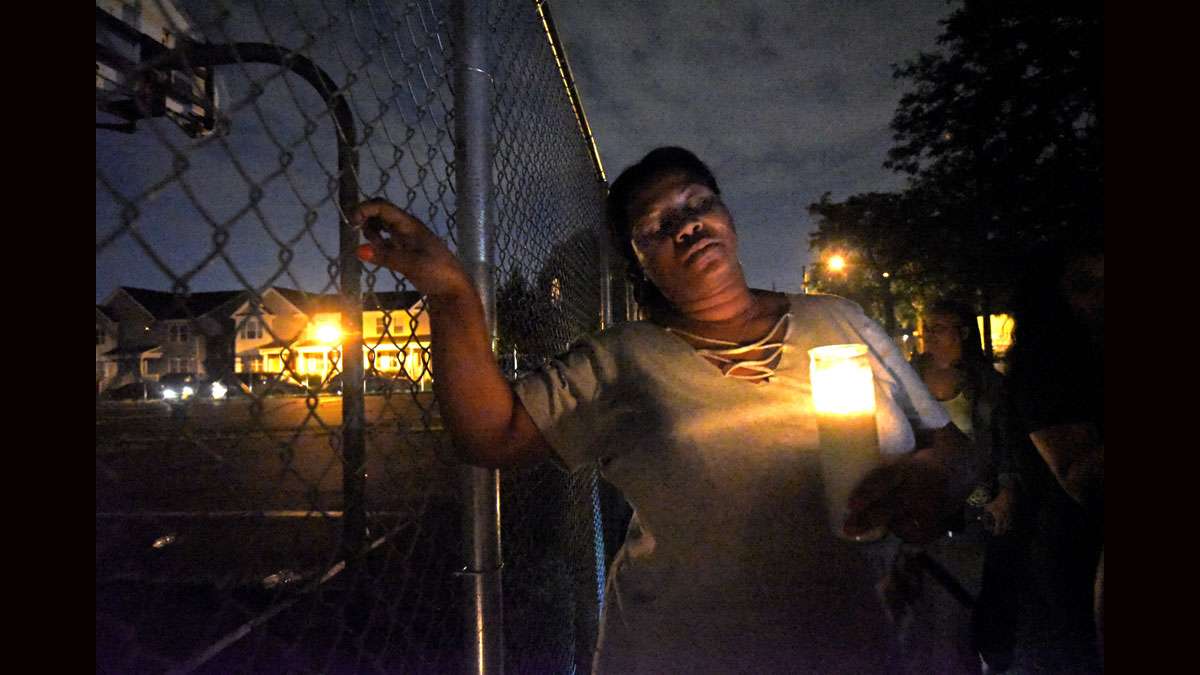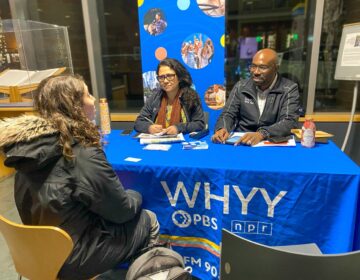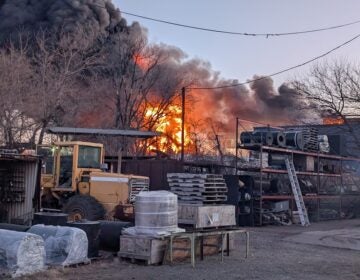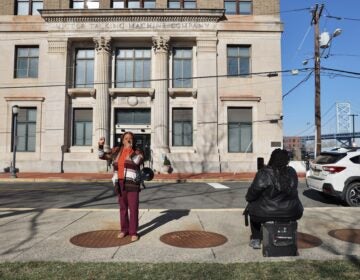In Camden, a search for hope by candlelight
I go to way too many candlelight vigils.
They are the sunset rituals where loved ones gather following a violent death, often held in the exact spot where the person was killed, usually in front of an bedsheet airbrushed with the victim’s portrait. Friends and family members pray, embrace, and share reminiscences that make mourners smile through tears.
But vigils also allow for voices to be raised in hope, even in the face of soul-crushing loss — with words that people can use to move forward in this traumatized city.
July was so cruel here that I attended four in 10 days — with victims ranging from a 4-year-old girl to a 36-year-old man.
Before last month’s bloody surge, Camden had only nine homicides in the first six months of 2017, as compared to the 2016 total of 44 for the whole year. But a downturn in violence mattered little to the people who loved:
Saiheed O’Bryant, 36, gunned down on July 12 at the Crestbury Apartments.
Natalise Gunter, 4, who died of blunt force trauma to the head on July 18. Before finding her daughter unresponsive, Lucy Gunter has told authorities that on July 15, when she returned from work to find Natalise missing a tooth and with a deep cut on her face, her boyfriend told her he’d beaten the child for not eating and after that, Natalise stopped eating and slept a lot.
Dasheem Funches, 21, shot and killed on July 22 in East Camden.
David Wells III, 29, killed by multiple gunshot wounds on a quiet street, 12 hours later and a mile away from Funches on July 22.
At the vigils, some tried to address the myriad of challenges in Camden that the deaths represented, from the intractability of gang violence to the apparent inability of authorities to prevent a child from falling prey to domestic abuse.
Patricia O’Bryant, who said her son Saiheed had just gotten out of jail and was thrilled to be able to spend more time with his four children, asked at his July 13 vigil that nobody wear red — the gang color associated with the Bloods — to his funeral. She begged the youth: “Please don’t do this to your mothers.”
At the July 19 vigil for Natalise Gunter, loved ones characterized Lucy Gunter, 20 and a mother of three, as a domestic violence victim who desperately needed help. Some expressed anger with the Department of Youth and Family Services for frightening the young mother of three with their involvement in her case, while others in the community decried the agency for not saving the child.
Gunter’s brother James told the mourners: “Girls do make mistakes with having kids so young and they just get so caught up in a man … just seek help, because there really is help out there.”
At the July 20 vigil for Dasheem Funches, several dozen youths filled an East Camden street, many of them drinking and smoking marijuana. I stood across the street with Wazira Inman, who has attended many memorials since her own brother was murdered last year. When a fight broke out, the pair of Camden Metro police officers at the scene quickly grew to ten.
Lieutenant Zack James, a veteran African-American officer, told the kids he’d lost people in the Camden streets, too, and if they behaved better, he wouldn’t shut down the vigil. “There’s a lot of people here who just want to be part of the crowd,” he told the youths. “They want to get something on Instagram, Facebook, Snapchat … But if you want to get together, I’d be more than happy to lead everyone in prayer. Because here’s the fact: that’s somebody’s son, that’s somebody’s father, that’s somebody’s brother.”
Inman, 31, understood the need for liquor and drugs to numb the pain. Still, she was frustrated that no male community leaders had shown up to help the kids channel their grief, as they’d sometimes done in the past.
Finally, she began yelling — to the youth and to the heavens — as loud as she could.
“Why are we all out here fighting each other? … They’re all babies, God, they don’t all have to be products of their environment!…The city of Camden needs you, God …. As you can see, God, the adults are not showing up …. Show them God, that there’s a different way, a different way to live, a different way to make money, a different way to have fun! … You are losing your boys, and then you all come here and drink and smoke cause you’re all numb to this shit! … Do something different, there are doctors and lawyers and entrepreneurs out here!”
By the time Inman finished, the mourners were holding hands, the silence broken only by the sound of scattered applause and teenagers crying softly on a summer night.
____________________________________________________________
April Saul is a Pulitzer Prize-winning photojournalist who lives in Camden, New Jersey. She writes about the challenges and joys of the residents in Camden on her Facebook page CAMDEN, NJ: A Spirit Invincible. Several times a month she writes essays on Camden for NewsWorks.
WHYY is your source for fact-based, in-depth journalism and information. As a nonprofit organization, we rely on financial support from readers like you. Please give today.

























